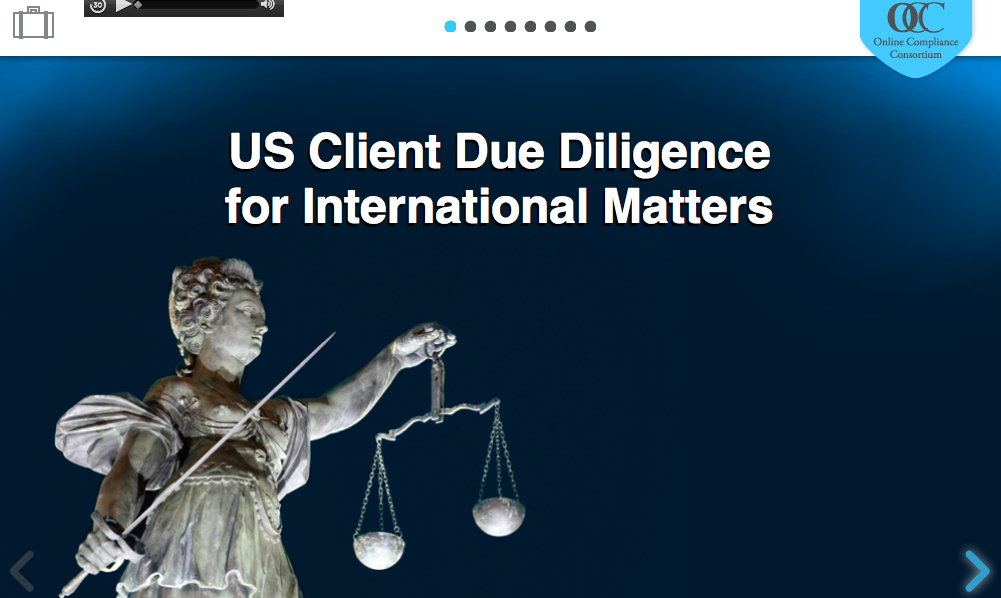A new online course developed by the Online Compliance Consortium USA Core Group
Does this phone call sound familiar?
US Partner: …You can’t be serious. I have known these clients for over 10 years. Whose side are you on any way?
UK Partner: Give me a break! I am on your side, I am on the side of the firm and I am on my side. If I fail to do the required client due diligence and as a result fail to report a suspicion of money laundering, the firm’s international reputation is at stake and I personally can go to prison. So think about your responsibility to the firm and your colleagues and just ask for the documentation.
Click here to Demo: US Client Due Diligence
Tension between US attorneys and their colleagues practicing in AML regulated jurisdictions is all too often the result of confusion over the varying international compliance requirements. This 30 minute course, collaboratively developed by leading US law firms, is intended to: help relieve that tension; clarify the international CDD and AML requirements imposed on US attorneys; protect the firm’s reputation; and help support international compliance.
If you are interested in more information, please email Howard Finger at howard.finger@vinciworks.com, or call him at +44(0)7503270236.





